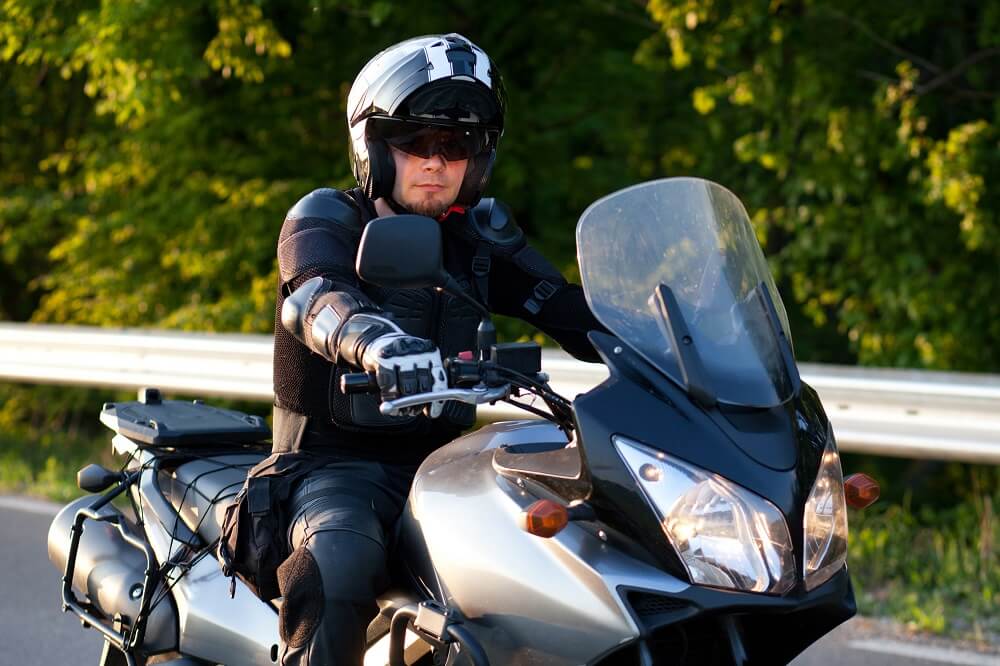
Florida law requires motorcycle riders to wear a helmet that complies with U.S. DOT standards but waives the requirement if a motorcyclist is over 21 years old and has insurance that provides at least $10,000 toward medical expenses in case of a motorcycle accident. Anyone younger than 21 must wear a motorcycle helmet and a DOT-compliant eye shield over their eyes.
The helmet law does not apply to people 16 years old or older on motorcycles with motors of 50cc displacement or less or mopeds with no more than two-brake horsepower that can only go up to 30 mph.
Did Motorcycle Rider Deaths Increase After the Helmet Law Was Repealed?
Florida’s law allowing properly insured motorcyclists to ride without helmets took effect on July 1, 2000. Prior to that, Florida had a law requiring all motorcyclists to wear a motorcycle helmet.
The repeal of the state’s all-rider mandatory helmet law has led to a substantial increase in motorcyclists killed in Florida.
According to the National Highway Traffic Safety Administration (NHTSA), the 575 motorcycle accident fatalities in the two years following the change of law represented a 71% increase compared to the 337 fatalities that occurred in 1998-1999 before the change of law.
After annual motorcycle deaths in Florida reached an all-time high of 550 in 2006, Florida enacted a mandatory motorcycle training law. Deaths dropped for three straight years from 2008 to 2010.
Ride Smart Florida says annual motorcycle fatalities in Florida have more than doubled in the 20 years since the repeal of the mandatory helmet law, with an average of 550 motorcycle fatalities per year from 2016-2021.
When Should I Consider Replacing My Motorcycle Helmet?
The Motorcycle Safety Foundation (MSF) says in a detailed guide entitled What You Should Know About Motorcycle Helmets that most helmet manufacturers recommend replacing your helmet every two to four years. Replace it if you notice any signs of damage before then.
After a crash, your helmet has probably absorbed some impact shock and is damaged, whether you can see it or not. If you drop your helmet, it could be damaged.
After a few years of use, a helmet’s protective qualities may deteriorate, the MSF says. The chin strap may fray or loosen at its attachment points, for example.
Some helmet manufacturers will inspect and repair a damaged helmet. Some offer discounts on replacement helmets after a crash.
The MSF also suggests that a new motorcycle helmet will most likely be an improvement over your current helmet. “Chances are that the helmet you buy in a couple of years will be better – stronger, lighter, and more comfortable – than the one you own now,” The MSF says.
Does PIP Insurance Coverage Apply to Florida Motorcycle Riders or Passengers?
Personal Injury Protection insurance, when purchased at the minimum that Florida requires to register a vehicle in the state, covers 80% of all necessary and reasonable medical expenses up to $10,000 resulting from a covered injury, no matter who caused an automobile crash.
However, PIP coverage does not apply to motorcycles. The statute that requires minimum auto insurance coverage states that the coverage does not include motorcycles.
You are not required to have liability insurance to register a motorcycle in Florida, but you are required to have it under certain circumstances, according to the Florida Department of Highway Safety and Motor Vehicles.
If a motorcycle operator is charged in a crash that causes injuries, the owner of the motorcycle will be financially responsible for bodily injuries and property damage others suffer in the crash. If the motorcyclist does not have liability coverage at the time of a crash, they’ll be required to buy and maintain bodily injury/property damage liability insurance for three years to avoid suspension of their driver’s license and motorcycle tag/registration or to reinstate their license and tag/registration after a suspension.
In addition to liability insurance, motorcyclists who want to ride without a helmet need to maintain health insurance that provides the required $10,000 coverage. Further, when riding without a helmet, bikers should have a health insurance card from an HMO or a recognized health insurance provider with them as proof of required medical coverage.
What Are Some Common Injuries in a Motorcycle Crash?
The most common injuries in motorcycle accidents in Florida include:
- Head and traumatic brain injuries (TBIs)
- Back and spinal cord injuries, often causing paralysis
- Broken bones, particularly broken arms, legs, pelvis, ribs, and sternum
- Traumatic amputation of feet, hands, toes, fingers, or limbs
- Cuts and bruises, aka “road rash.”
Contact a Ft. Lauderdale Motorcycle Accident Lawyer
Besides a helmet, motorcycle riders have little protection if they are hit by a truck or passenger vehicle. We recommend wearing a helmet that meets Federal Motor Vehicle Safety Standard (FMVSS) No. 218 whenever riding a motorcycle.
However, you should know that not wearing a motorcycle helmet should have no impact on your motorcycle accident claim if another party caused your accident and injuries. The presence or absence of a helmet has nothing to do with another motorist’s negligence that led to an accident.
You may have a right to recover compensation for your injuries and other losses after a motorcycle accident that someone else caused in Florida. Contact Phillips | Tadros, P.A., today to discuss your case with our trusted Fort Lauderdale motorcycle accident lawyers during a free consultation.
